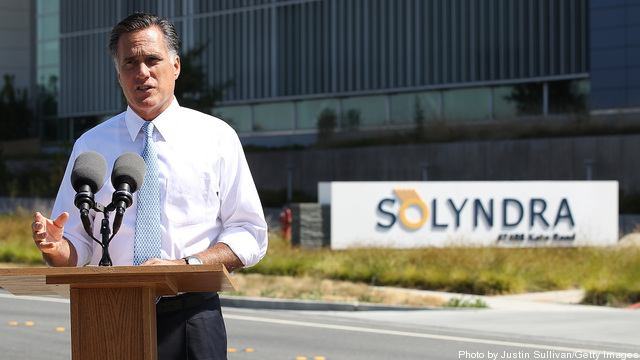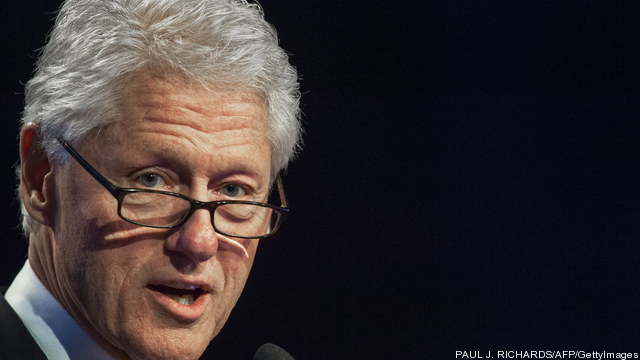We couldn’t have said it better ourselves. Last year’s election season brought us an amazing series of zingers and gaffes from national politicians — including a number on Solyndra and the clean energy stimulus. Since 2013 isn’t an election year (well, sort of), cleantech hasn’t been in the national spotlight in the same way. That means most of the key… Keep reading →
Solyndra
Sign up and get Breaking Energy news in your inbox.
We will never sell or share your information without your consent. See our privacy policy.The US federal government has long had a hand in guiding development of the country’s energy sector. In some cases, such as the Department of Energy’s role in the early stages of research and development that helped usher in the shale boom, this has been hailed as a success. In others, such as the highly-publicized… Keep reading →

Advocates of loan guarantees claim that this subsidy is a success when the recipient company remains in business. This is a superficial and misleading way to view loan guarantees. Indeed, loan guarantees are among the most pernicious ways that governments distort markets and harm American families and businesses alike. Here are seven reasons why.
This piece was originally posted on the Heritage Foundation’s website. Learn more here. Keep reading →

Are DOE’s most effective problem solvers outside the Department itself?
In the fall of 2011, the Department of Energy’s Inspector General issued a sobering report calling for a major restructuring of operations. Keep reading →
Richard Kauffman had a rapt audience at the AGRION Energy and Sustainability Summit in New York City as he opened the event with a largely off-the-cuff speech. He is a man known in the industry for handing out (and making) serious sums of money in energy, and has just been handed one of the highest profile, but least understood, new positions in the New York state government. Keep reading →

The American Wind Energy Association and Solar Energy Industries of America, the leading groups for the most important renewable energy industries in the country, were feeling pretty good in the wake of Tuesday’s elections.
Both groups issued press releases on Wednesday, with the AWEA putting its focus on the success of candidates who supported the production tax credit, which the organization now believes has a good chance of being extended before its Jan. 1, 2013, expiration, and the SEIA taking advantage of the opportunity to heap copious praise upon President Obama. Keep reading →

Questions about the efficacy of President Barack Obama’s stimulus spending for clean-energy programs came under the spotlight on Thursday with the claim by Republican presidential nominee Mitt Romney that “half” of the companies that received government support under the $90 billion program had gone out of business.
Romney attacked the program that poured billions into clean energy as part of the administration’s effort to keep the economy afloat after the 2008 financial meltdown, saying that the money could have been better spent on teachers, and accusing the president of picking “losers.” Keep reading →

A year after the US government raced to meet a deadline to finish loan agreements with dozens of clean energy companies, less than half the total money promised has been handed over.
Technical questions and companies’ own failures in hitting contractual milestones are behind some of the holdups. But government officials fearful of taking a risk on firms that could collapse may have also caused some of the delays. The political firestorm after the failure of Solyndra, a solar panel maker that went bankrupt last year after receiving more than $527 million in a government loan, may have made the authorities wary, industry experts and investors say.

For renewable energy, the 2012 presidential race reveals the downside of being championed.
President Barack Obama channeled a historic amount of money into green energy in his first term and made it a centerpiece of his jobs platform. As a result, renewable energy is big target for those taking aim at Obama. Keep reading →
Bill Clinton Urges Focus on Clean Energy While Musk Admits to Tough Times at Tesla
By Felicity Carus
Energy efficiency and solar are the low hanging fruit for American companies both at home and overseas, former President Bill Clinton said yesterday.
“We should pick the low hanging fruit. It always begins with efficiency. We’re much more energy efficient than we used to be but we have not made a serious attempt to get it to scale,” Clinton said in the closing keynote of the National Clean Energy Conference in Las Vegas last week. Keep reading →


